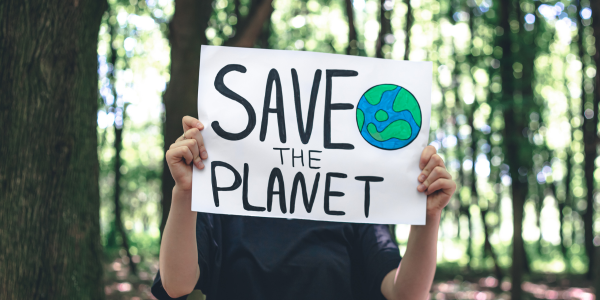As much as we would like to claim that green mortgages can save the planet, this idea alone is unrealistic. Saving the planet involves deeper and more complex actions. Previously, we shared an article on How Green Mortgages Are Earth Day Friendly. Today, we focus on addressing environmental challenges, which are more urgent than ever. The movement to protect the planet unites individuals, communities, and nations to safeguard our natural environment. This article highlights the key principles and actions required to support environmental sustainability.
The ABCs of Environmentalism: Awareness, Behaviour, and Conservation
Awareness lies at the core of environmentalism. We must recognise how our actions impact the planet and take steps to reduce waste and emissions. Simple actions, such as turning off unused electrical appliances, can make a difference. Larger changes, like adopting renewable energy sources, further reduce environmental harm.
Behaviour is another crucial aspect. Making positive lifestyle changes helps limit our ecological footprint. This could include using public transport, reducing single-use plastics, and choosing energy-efficient appliances.
Conservation is equally important. Protecting natural habitats and resources is essential for long-term sustainability. Recycling, planting trees, and reducing water usage preserve vital resources. Avoiding harmful practices, like deforestation and overfishing, prevents long-term ecosystem damage.
Awareness and Education
Raising awareness and promoting education about environmental issues is key to saving the planet. Understanding how human activities affect the environment empowers individuals to make informed decisions. It also inspires actions that support sustainable living. Education builds responsibility and motivates people to find practical solutions to environmental challenges.
Government Action
Governments worldwide must take decisive action by introducing legislation to protect the environment. This may involve creating policies such as green mortgages and encouraging investments in sustainable housing. Authorities should also focus on cutting emissions and waste while supporting research initiatives.
The Paris Agreement represents a key international accord to address climate change through global cooperation. Countries, including the UK, Norway, France, and New Zealand, have committed to achieving net zero emissions by 2050. However, the critical question remains: Are these nations making measurable progress towards meeting the Paris Agreement’s targets?
Conservation and Preservation
Conservation and preservation lie at the core of the ideology of saving the planet. It protects natural resources, biodiversity, and ecosystems from degradation and destruction. This includes efforts to reduce deforestation, promote sustainable agriculture, preserve endangered species, and safeguard natural habitats.
Conservation also means investing in renewable energy sources, such as solar and wind power, to reduce the reliance on fossil fuels.
The ideology of saving the planet is a collective responsibility. We must instil environmental awareness and promote conservation initiatives at home and abroad to protect our planet from further harm. Green mortgages can be just one part of this collective effort.
Sustainable Development
The ideology of saving the planet emphasises the importance of sustainable development. It recognises that economic growth must go hand in hand with environmental stewardship. It involves adopting environmentally friendly practices in industries, promoting renewable energy sources, and striving for resource efficiency. Balancing economic prosperity and ecological well-being is essential for a sustainable future.
Individual Responsibility
The ideology of saving the planet emphasises that every individual has a role to play in protecting the environment. It encourages personal responsibility by making conscious choices that minimise environmental harm. This can include reducing waste, conserving energy and water, adopting eco-friendly transportation options, supporting sustainable businesses, and making environmentally conscious decisions in daily life. By recognising the power of individual actions, we can collectively create a significant positive impact on the planet.
Collaboration and Advocacy
Saving the planet requires collaboration and advocacy on a global scale. Governments, organisations, and individuals must work together to implement policies and initiatives that address environmental challenges. Collaboration fosters a sense of shared responsibility and empowers communities to work towards a common goal.
Innovation and Technology
Innovation and technology play a vital role in the ideology of saving the planet. Advancements in renewable energy, clean technologies, and sustainable practices have the potential to revolutionise the way we interact with the environment. From solar panels and wind turbines to energy-efficient buildings and electric vehicles, embracing technological innovations enables us to reduce our ecological footprint and create a more sustainable future.
Long-Term Thinking
Saving the planet requires a shift towards long-term thinking. It involves recognising that our actions today will have consequences for future generations. This ideology calls for decision-making that prioritises the well-being of the planet and future inhabitants over short-term gains. By embracing a long-term perspective, we can ensure the preservation of our planet for generations to come. This includes making policy decisions prioritising environmental sustainability and investing in initiatives that have long-term positive impacts on the planet.
Green Mortgages
Revisiting green mortgages, we cannot ignore the fact that green mortgages are an innovative financial product that helps make homeowning more environmentally conscious. By offering incentives for buyers who take steps to improve the energy efficiency of their homes, green mortgages help reduce carbon emissions and other environmental impacts. Through lower monthly payments, access to cheaper loans, and additional benefits, green mortgages can help you save money on your energy bills while helping save the planet.
Furthermore, green mortgages can also be used to finance renewable energy projects such as solar photovoltaic systems or geothermal heating and cooling systems. These investments benefit both personal financial gain and the environment—and with a green mortgage, you can make them even more affordable. Taking part in a green mortgage is an excellent way for homeowners to do their part in protecting the planet without sacrificing affordability.
In conclusion, the ideology of saving the planet embodies a collective responsibility to protect and preserve our natural environment. It necessitates awareness, conservation, sustainable development, individual responsibility, collaboration, innovation, and long-term thinking.
By embracing this ideology, taking action daily, and being friends of the earth, we can contribute to a healthier, more sustainable planet for ourselves and future generations. Saving the planet is not just an ideology but a shared commitment to creating a better world. Our collective efforts can pave the way for a brighter, more sustainable future.
Thank you for reading our “The Ideology Of Saving The Planet | The Green Initiatives” publication. ” Stay “Connect“-ed for more updates soon!
Mortgage and Protection Mortgage Brokers | Connect Mortgages







